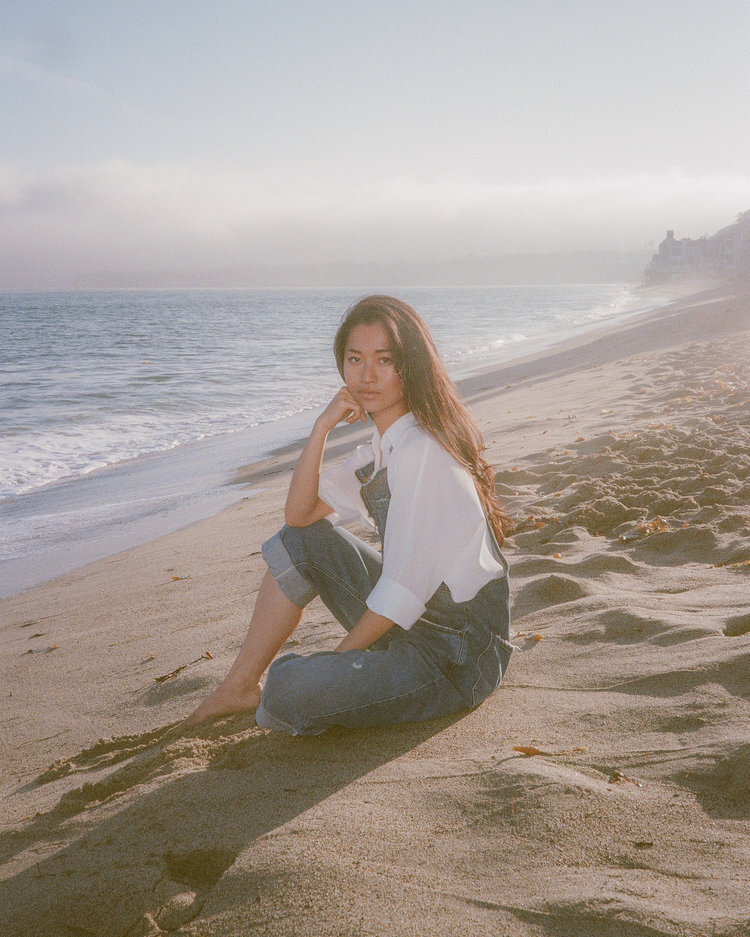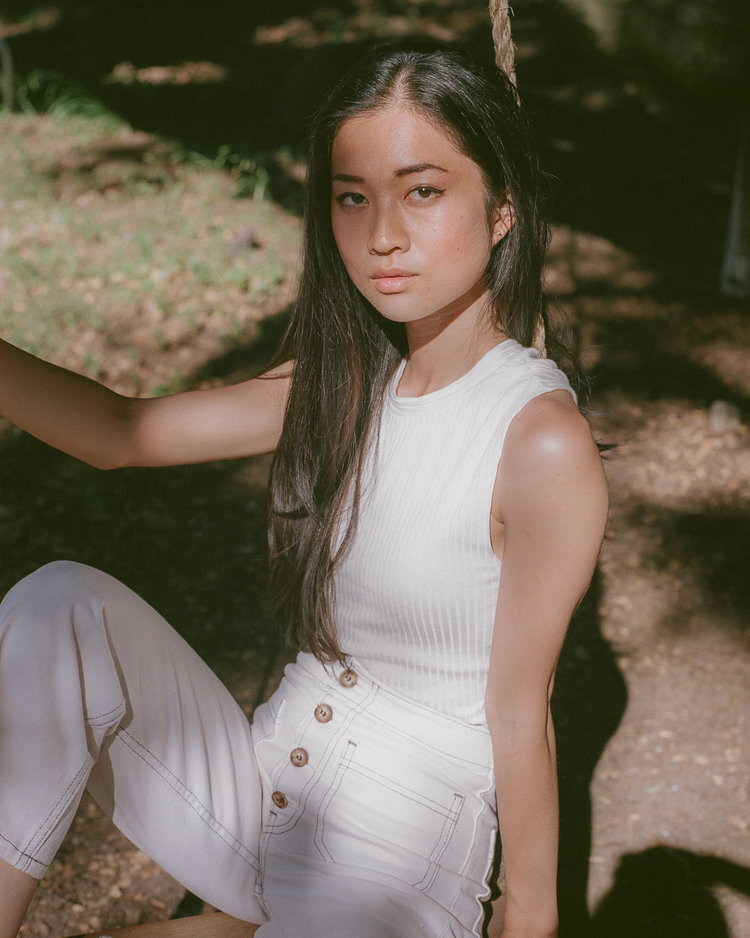Episode 204 | KAMEA CHAYNE OF GREEN DREAMER PODCAST ON THE NEED TO DECOLONIZE "ENVIRONMENTAL CONSERVATION" + BUILD REGENERATIVE ACTIONS INTO OUR COLLECTIVE SUSTAINABILITY GOALS
In episode 204, Kestrel welcomes Kamea Chayne, the host of Green Dreamer Podcast, to the show. A Taiwanese American eco creative, writer and author, Kamea illuminates our paths to ecological regeneration, intersectional sustainability, and true abundance and wellness for all through her powerful show, Green Dreamer.
“Sustainability to me isn’t an individualistic pursuit for individual people or brands — rather, it’s a collective goal requiring context and systemic change. In order to be sustainable, we also need to be regenerative in our actions and practices.”
-Kamea Chayne, Host of Green Dreamer Podcast
GREEN DREAMER
On this week’s show, Kamea shares more on her journey, along with the origins and evolution of her podcast, Green Dreamer. Kestrel asks Kamea to share more on what regenerative means to her, and she outlines the way she interprets it, with relation to sustainability.
Also, Kamea shares more on what she has learned through her show, with regard to why we need to decolonize “environmental conservation”. As Green Dreamer has over 250 episodes, Kamea suggests a collection of her favorite episodes to get you started, if you’re new to her show.
The below thoughts, ideas + organizations were brought up in this chat:
Ecologist Guide To Fashion by Ruth Styles
“What I mean when I say that sustainability requires context is — for example, we know cotton is a thirsty crop, even when it’s organic. So, some questions to ask: Is that cotton grown in a region where it naturally rains a lot, so artificial irrigation isn’t necessary or at least relied on? Or is it grown in a dry region where it’s mostly artificially irrigated? Is the soil so healthy and are the root systems of the plant in that ecology so extensive that the land kind of acts like a sponge and is able to hold rainwater well? Or is the land really degraded and the soil really compacted, leading to water runoff every time as soon as it rains, which means even if it rains a decent amount, artificial irrigation might still be necessary because the water cycle isn’t functioning as it should? And finally, is the agroecosystem a monoculture, which means the organic cotton may still require *biological* pesticides, which may still be harmful to people and other wildlife? or is there so much complexity and biodiversity of life that’s built up resilience and the health of that ecosystem itself, to ensure that the plants can thrive in that circular system?” -Kamea
“A lot of times people in the environmental movement will look at these ecological impact studies showing water use, energy use, land use, etc, in fashion, for example, of the different fibers, to compare which one is more ‘eco-friendly’ and so forth, but these studies tend to leave out these important contexts that I just discussed that show that it’s important for us to be regenerative, and it’s also important for fibers to be bioregionally appropriate to where they’re grown.” -Kamea
Kamea’s Instagram post on the need to decolonize “environmental conservation”
More on decolonizing “environmental conservation” in Kamea’s newsletter >
Braiding Sweetgrass by Robin Wall Kimmerer
“On The Stubborn Whiteness of Environmentalism” by Danielle Purifoy in Inside Higher Ed
“Abundance is sort of natural to what the ecology wants, and we realize that a lot of times scarcity is a human constructed concept as well.” -Kamea
Biocultural diversity, a concept Kamea learned from Terralingua’s Director Luisa Maffi
Fibershed, listen to the Conscious Chatter episode with their founder here >
Regenerative Organic Certification, “a revolutionary new certification for food, fiber, and personal care ingredients. ROC farms and products meet the highest standards for soil health, animal welfare, and farmworker fairness.”
“Liberal, progressive — and racist? The Sierra Club faces its white-supremacist history.” in The Washington Post
The Robert Hanna Show #4 | Dr. Carolyn Finney (FYI — Robert Hanna is the great great grandson of John Muir)
Green Dreamer Episode 173: Sean Sherman on Revitalizing Native American Foods and Re-Identifying North American Cuisine
Green Dreamer Episode 179: Mark Charles on Unveiling the Deeper Roots of Our Systemic Social and Environmental Injustice
Green Dreamer Episode 245: Gina Rae La Cerva on how our shift from eating wild to domesticated foods transformed our landscapes
Green Dreamer Episode 248: Maxine Bédat on Setting New Standards of 'Sustainability' in the Fashion Industry
Green Dreamer Episode 253: Aditi Mayer on Decolonizing Fashion and Going Beyond the Tokenism of Diversity
“People talk about humans being destructive — I really don’t like that narrative, because it’s really the how and it’s the systems that we have created and not us inherently, so I’m interested in learning how to be a more regenerative human.” -Kamea
Thanks for listening! Subscribe, download, and leave a review for Conscious Chatter on iTunes if you get a chance. I big time appreciate your support!
P.S. If you want to connect, send me a DM on Instagram @consciouschatter! <3 Kestrel






